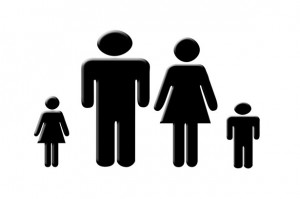Recently Governor Gavin Newsom of California halted executions of inmates on death row. Newsom expressed sympathy with victims and their loved ones, saying this as he took his action, “To the victims, all I can say is, ‘We owe you and we need to do more and do better, more broadly for victims in this state.’”
Much has been said over the years against and in favor of the death penalty in our country; the arguments are legion and can easily be found online (one of many examples here). Not as much has been said, from the “anti” side, about the feelings of anger and betrayal that victims of heinous crimes and their surviving loved ones have when capital punishment is abolished or executions are halted. To examine those feelings, we will build on what we earlier said about capital punishment.  We saw that, from the paranormal perspective, the truths of reincarnation, karma, free will and the relationship between good and evil show that those who commit heinous crimes will ultimately pay for their behaviors and that they exist in dismal “gray areas” after they cross over; that there is no “death,” we live many lives on earth, and we will see our loved ones again; that the deceased victim is almost always at peace on the other side; and that there is often some karmic “explanation” for the crime. These truths in many ways support the “anti” side of the argument. But many victims and loved ones understandably suffer their losses in deep anguish for years, if not decades.
We saw that, from the paranormal perspective, the truths of reincarnation, karma, free will and the relationship between good and evil show that those who commit heinous crimes will ultimately pay for their behaviors and that they exist in dismal “gray areas” after they cross over; that there is no “death,” we live many lives on earth, and we will see our loved ones again; that the deceased victim is almost always at peace on the other side; and that there is often some karmic “explanation” for the crime. These truths in many ways support the “anti” side of the argument. But many victims and loved ones understandably suffer their losses in deep anguish for years, if not decades.
Many victims are death penalty supporters and probably agreed with other critics of Newsom’s action who “called the blanket reprieves an abuse of power. . . [and] questioned whether Newsom had the authority to withdraw the lethal injection protocol,” according to an NPR report in March 2019. And it is not only victims and their loved ones who may feel hurt and betrayed.  Those feelings may also be shared by the juries who have decided, with great seriousness and in good faith, on the death penalty; the perpetrators over whose lives they were deciding, most of us would agree, carried out some of the most gruesome and horrifying crimes imaginable. With the death penalty sentence in any given case, victims, loved ones, prosecutors, juries and many in the general public may have felt some measure of justice, and with death now off the table, their pain and anger undoubtedly emerge all over again.
Those feelings may also be shared by the juries who have decided, with great seriousness and in good faith, on the death penalty; the perpetrators over whose lives they were deciding, most of us would agree, carried out some of the most gruesome and horrifying crimes imaginable. With the death penalty sentence in any given case, victims, loved ones, prosecutors, juries and many in the general public may have felt some measure of justice, and with death now off the table, their pain and anger undoubtedly emerge all over again.
One of the main purposes in this post is to acknowledge the deep feelings held by people of good will on this issue, even if we on the “anti” side do not agree with capital punishment. Our feelings are our own, and there is a very good chance that raw anger, hurt, fear and betrayal among some Americans will never diminish. It is likely that those Americans will always believe that liberals and progressives are “soft on crime” when we oppose capital punishment. Proponents may also continue to believe, despite evidence to the contrary, that the death penalty deters violent crime. That no other advanced democracies have the death penalty does not move death penalty supporters to change their minds, and those supporters feel betrayed by countries that do not extradite fugitives from US justice if there is a chance that the fugitive will be sentenced to death.
Given the legitimacy of sincerely-held feelings on this subject, and with prayers, thoughts and deep sympathy for the victims of death row inmates’ many victims and their loved ones, let us consider additional ways for death penalty supporters to examine the issue and their own situation. This may take a certain amount of courage, patience and self-examination.
- First, criminals sentenced to death “typically spend more than a decade awaiting execution. Some prisoners have been on death row for well over 20 years.” The time between sentencing and execution is considerably longer than it was years ago, for a number of reasons, including more and more appeals that have been built into the system. The delays are problematic in some ways, but they also result at times in exonerations, according to the Death Penalty Information Center: “As of March 2017, 24 of the men and women wrongfully convicted and sentenced to death since states resumed capital punishment in the 1970s had waited 20 or more years to be exonerated. Ten who were exonerated between 2013 and 2015 had waited 25 years or more for their exonerations and, for eight, exoneration took 30 years or more.” Presumably no loved one of a murder victim wants the system to put the wrong individual to death. At any rate, when the execution finally comes, how truly satisfying is that outcome for the surviving loved ones? In some cases, it may be satisfying to a certain degree. On the other hand, as many loved ones affirm, the death of the perpetrator never brings a deceased victim back to life.
- Second, commuting death sentences to life in prison without parole means that those inmates will live for many more years in a small cell with limited movement, amenities, fresh air, etc. For some inmates, these conditions could be considered worse than a death sentence. (We might also argue, along with citizens of other nations, that these are conditions that do not reduce crime and that in fact need drastic reform, but this is a discussion for another time.)
- Third, some survivors and loved ones of victims believe that inmates’ long lives in prison mean that those inmates will have to ponder for the rest of their lives their victims and the evil that they did to them. This belief provides some comfort for the survivor/victim. But they/we should not be deceived; while a certain percentage of murderers and other perpetrators have remorse for what they have done, it is possible that up to 16 percent of adult males in prison or on parole in the US (over one million) are psychopaths, according to Kent A. Kiehl and Morris B. Hoffman in The Criminal Psychopath: History, Neuroscience, Treatment, and Economics from 2011. In other words, it is quite possible that, whether the criminal who harmed or murdered your loved one or you yourself is on death row or is sentenced to life in prison, that person lives solely for him- or herself and has no misgivings over what s/he has done (except perhaps the fact that s/he was caught and punished). The job of the victim or loved one, then, is to tend to one’s own mental, emotional and spiritual health and that of your friends and families.
- Finally, it may be a natural reaction of a victim’s loved one to believe that a governor like Newsom, other legislators who have argued for abolition of the death penalty or a halt to executions, or capital punishment opponents do not want criminals punished, have no sympathy for the victims or have their opinions for crass political reasons.
 The loved ones who believe these things may be right in some cases, or they may be wrong; what may be more important, however, is that spending emotional and psychic energy with such sentiments most likely does more harm to the holders of those thoughts than it does to the politicians or certainly the inmate. The trend in the US and around the world, whether we like it or not, is away from capital punishment (and we must always remember that the US has the highest rate of gun violence and incarceration in the Western world – our system fails us at many levels). One can rail against these facts, vote for pro-death penalty political candidates, lobby for capital punishment, and so on, but there may need to come a time to make the difficult transition to let go …
The loved ones who believe these things may be right in some cases, or they may be wrong; what may be more important, however, is that spending emotional and psychic energy with such sentiments most likely does more harm to the holders of those thoughts than it does to the politicians or certainly the inmate. The trend in the US and around the world, whether we like it or not, is away from capital punishment (and we must always remember that the US has the highest rate of gun violence and incarceration in the Western world – our system fails us at many levels). One can rail against these facts, vote for pro-death penalty political candidates, lobby for capital punishment, and so on, but there may need to come a time to make the difficult transition to let go …
So, we liberals, progressives and death penalty opponents must have the utmost sympathy for the feelings and opinions of victims of death row inmates. At the same time, those fellow citizens of ours who harbor these feelings may wish to open their minds and hearts to ways of thinking – and feeling – that could well help them heal. In the long run, I hope we are all on the same wavelength – that violent crime is abhorrent to our society and that we collectively must do everything in our power to create a society that makes for far fewer people who commit crimes in the first place.
